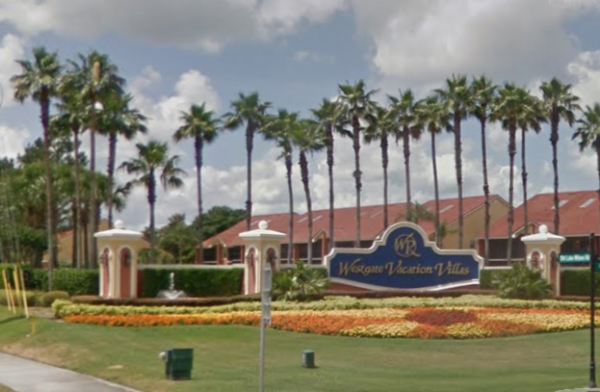
A family’s vacation to Central Florida ended in heartbreak Friday morning after a young boy drowned in a pond at Westgate Town Center Resort located at 7700 Westgate Blvd, Kissimmee, FL 34747. Authorities confirmed the child, Ashton, was visiting the area with his family when the incident occurred, according to Click Orlando.
Osceola County deputies responded to a report of a possible drowning near Westgate Boulevard before 10 a.m. Ashton had wandered away from his family, and his mother, Lyonetta Taylor, discovered him in the pond around 8 a.m. Video from the scene shows a bystander performing CPR before paramedics and deputies arrived, but Ashton could not be revived. Officials determined the drowning was accidental, with no evidence of criminal activity.
Lyonetta Taylor, speaking through tears, shared her pain: “Everything about my son, I’m going to miss… Hearing him scream, saying, ‘Mom.’ I had to get McDonald’s every day. I don’t care. I would do that again 1,000 times.” Taylor explained that Ashton was autistic and nonverbal, making the loss even more devastating. “He couldn’t cry for nobody. He couldn’t call for nobody. If there was a gate around the pond, Ashton wouldn’t have gotten in,” she said.
Taylor is now urging Westgate Town Center Resort to install gates around water features, post lifeguards at pools, and strengthen safety measures to prevent similar tragedies for other families.
Westgate Resorts expressed condolences and confirmed they are cooperating with the sheriff’s office investigation. The resort stated they are working with the family to help care for their needs during this difficult time and noted that CPR-certified staff members are on site 24 hours a day.
Ashton’s death has sparked renewed discussion about safety protocols at resorts, especially those serving families with young children and guests with special needs. The incident underscores the need for physical barriers and vigilant supervision around water features, as well as the unique vulnerabilities faced by nonverbal children with autism.
As the investigation continues, Ashton’s family and advocates are calling for immediate action to improve safety standards and prevent another family from facing such a devastating loss.

When a child’s life is lost in a tragic drowning at a vacation resort, families are left searching for answers and support. We spoke with Michael Haggard, a Florida attorney recognized for his work on drowning cases, to discuss the legal paths available to families facing such unimaginable loss. Haggard offers guidance on how families can hold property owners accountable and what steps they can take to protect others from similar tragedies.
Editor Darla Medina: Mr. Haggard, when a family loses a child in a drowning incident at a resort, what legal options might be available to them?
Attorney Michael Haggard: Families can consider filing a civil lawsuit if there is evidence the property owner failed to provide adequate safety measures, such as barriers around water features or proper supervision. Even if a drowning is ruled accidental, resorts and hotels have a responsibility to keep their premises reasonably safe, especially for children.
Medina: What might a family need to prove in such a case?
Haggard: They would need to show that the resort knew, or should have known, about the potential danger and didn’t take reasonable steps to prevent it. For example, if there were no fences or warning signs around a pond, or if the area was easily accessible to children, that could be grounds for liability.
Medina: How can families move forward if they’re considering legal action?
Haggard: It’s important to consult with an attorney who understands premises liability and drowning cases. A lawyer can help gather evidence, speak to witnesses, and work with experts to determine if the property owner’s negligence contributed to the tragedy. Legal action can also prompt changes that help protect other families in the future.
If your family has suffered the heartbreak of losing a loved one in a drowning incident at a resort or vacation destination, you don’t have to face this alone. Understanding your rights and exploring your legal options can be an important step toward finding some measure of peace and ensuring safer environments for others. Contact us today for a free consultation—let us help you navigate this difficult time with compassion and dedicated support.
 info@legalherald.com
info@legalherald.com